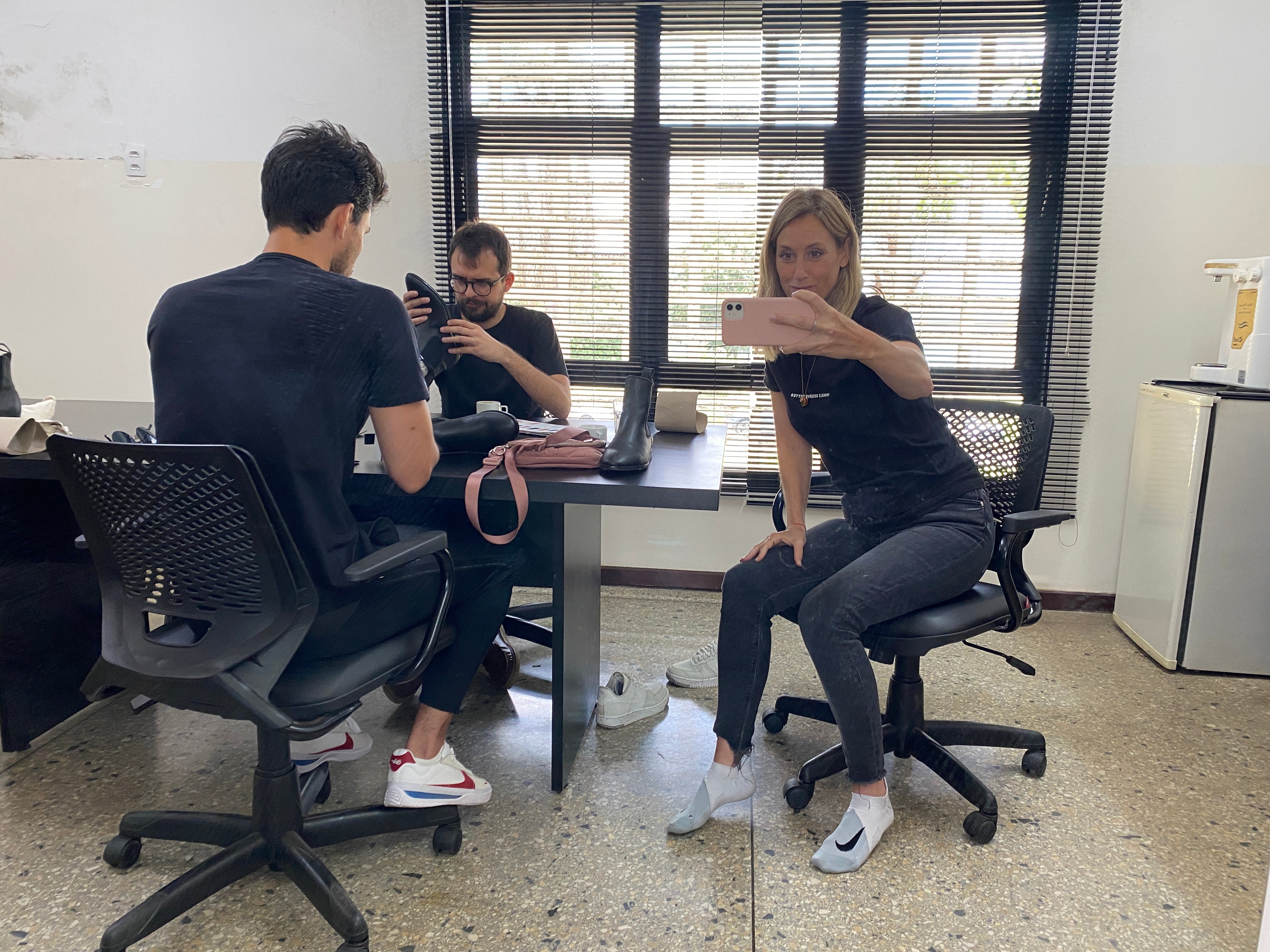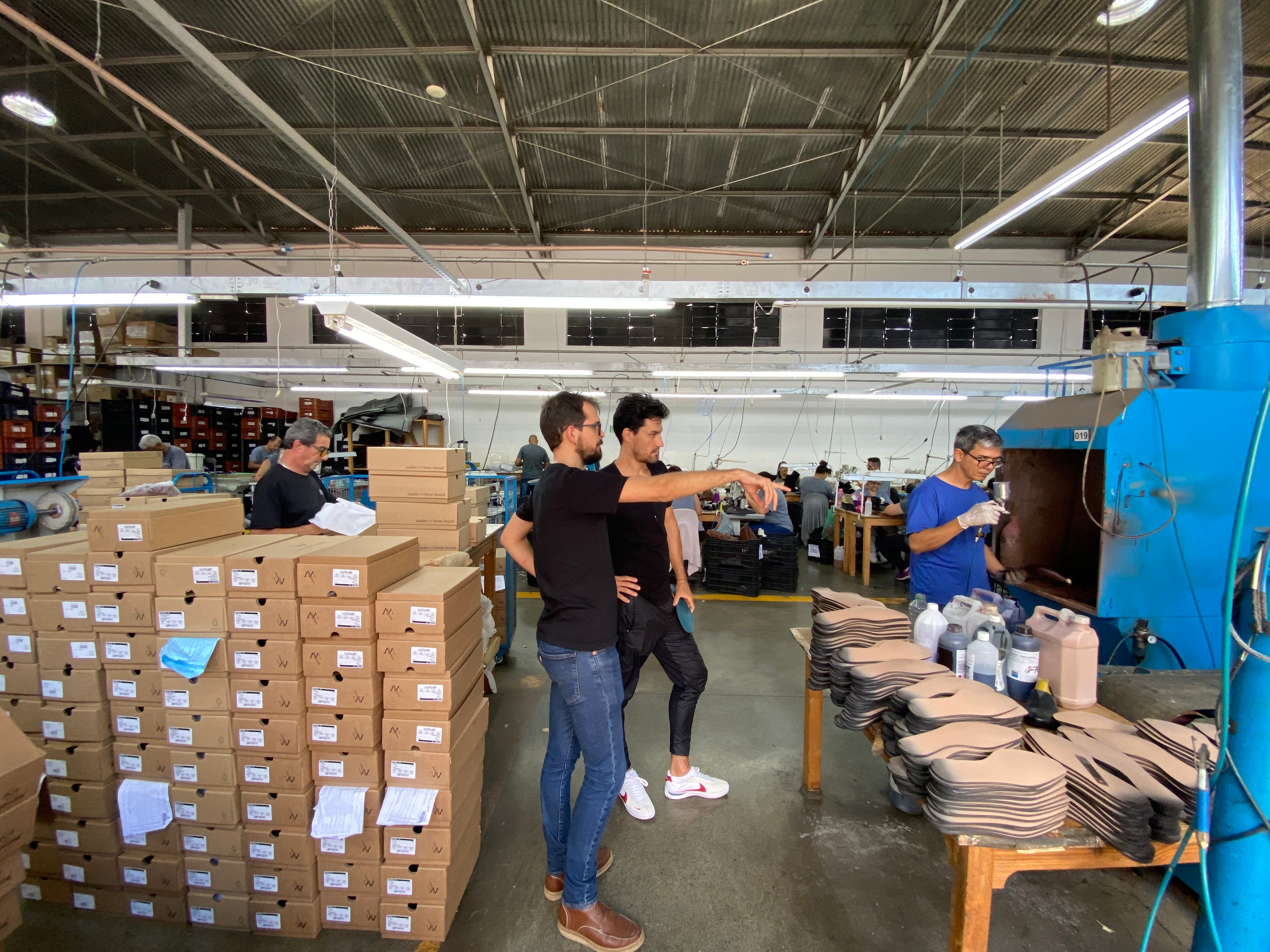We are proud to be featuring DESSERTO plant-based vegan Cactus Leather, here is information from their website on their mission which is 100% aligned with our beliefs at VOES.
By now all of us know that ''The Amazon is the Lungs of the Earth'' It means that the Amazon is home to 200 million cattle - not Logging but cattle. Cattle ranching is the largest driver of Amazon deforestation. 450,000 sq.km. of Brazil rain forest now is pasture, for comparison, Germany is 350,000 sq.km. UK is 240,000 sq.km.
It is often said that a piece of a hamburger is a piece of the Amazon.
20% of the Amazon has been destroyed. An area the size of the UK is lost every year, although sometimes are much higher.
72 BILLION ANIMALS ARE SLAUGHTERED EVERY YEAR 1/3 of a million tons of fish are caught each year for cattle feed. 1/3 of all crop land is required for animal feed. By 2025 the demand for meat will rise by 33% to 40% estimated.
Leather production it is argued that the skin is a by-product of the meat industry. They argued that environmentally, the tanning industry is simply converting a product that would -otherwise go to landfill. From an environmental standpoint, this argument is invalid due to the tremendous environmental harm the tanning industry causes worldwide.
Chromium-tanned leather is the most popular form of producing leather these days, and one of the most noxious. It relies on a toxic slush of Chromium salts and tanning liquor.
EVEN IN FULLY MODERNIZED TANNERIES IT IS NEARLY IMPOSSIBLE TO RECLAIM ALL THE POLLUTANTS GENERATED BY THE TANNING PROCESSING
As a rule of thumb, tanning one ton of hide typically results in 20 to 80 cubic meters of waste water with Chromium concentrations around 250 mg/L and Sulphide concentrations at roughly 500 mg/L, not to mention the offal effluence from the preparation phase and the pesticides often added to keep mould growth down during transportation to the facility. 70% of an untreated hide is eventually discarded as a solid waste - the hair, fat, meat, sinew, all goes straight into a landfill. Wastewater pollution is primarily a by-product of the initial preparation stage, wherein bits of flesh, hair, mould, excrement and other animal by-products are mixed into wash water and discarded.
''THE LEATHER CITY OF THE WORLD'' For example, Kanpur, India - the self proclaimed ''Leather City of the World'' this city once housed more than 10,000 tanneries which, in 2003, were dumping more than 22 tons of effluence into the Ganges river everyday. The city acted in 2009, sealing 49 of the highest-polluting tanneries in town - out of a list of 404 heavy polluters.
THE HAZARIBAGH NEIGHBORHOOD
The Hazaribagh neighborhood of the capital city Dhaka was rated as one of the five most toxic, heavily polluted sites on the entire planet by the Blacksmith Institute. Cow-derived leather has almost three times the negative environmental impact as its synthetic counterparts, including polyurethane (PU) leather. Leather has the greatest impact on eutrophication, a serious ecological problem in which runoff waste creates an overgrowth of plant life in water systems.
AROUND 80% OF LEATHER WORLD WIDE IS TANNED USING CHROME The Indian leather industry releases large amounts of toxic chemicals and acidic effluents concentrated with heavy metal Chromium, Cadmium, Lead, Arsenic, Cobalt, Copper, Iron, Zinc, Manganese. All these highly potent chemicals make their way into Ganges.
WHAT IS DESSERTO® ? The world's first highly sustainable and environmentally friendly organic material made of Nopal cactus, also known as the prickly pear.
INNOVATION DEVELOPED IN A RESPONSIBLE WAY Here in México, in the state of Zacatecas, we have a ranch where we grow our raw material: cactus. At the ranch we select and cut only the mature leaves of the plant without damaging the cactus itself, so every 6-8 months we will a new harvest. Also, we do not use an irrigation system for the cactus, it grows with rain water and the earth minerals which are rich in Zacatecas and great for the variety of cactus that we plant. The selected cactus is very resilient and strong, it can handle low temperatures during winter without dying and its thorns are very small so it’s easier and safer for our agriculture team to harvest. The cactus plantation is perennial, meaning that we only plant one time and the plantation last for about 8 years, different from other C3 plantations such as corn which has to be cultivated, harvested and then cultivated again annually. The cactus species we cultivate is native and typical of the region, it is a CAM (Crassulacean Acid Metabolism) plant, it's metabolism protects water and it doesn’t operate during daytime generating chlorophyll as most plants do. Cactus absorbs CO2 during night because only when the environment is fresh the plant opens it's stoma capturing CO2, generating oxygen and absorbing water present in the atmosphere which normally comes from the morning dew. C3 plants have a chlorophyll metabolism, these C3 plants need on average 1,000 liters of water to produce 1 kilogram of dry matter/material while cactus (CAM) only needs 200 liters, however these 200 liters are absorbed by the plant itself through its natural hygroscopic mechanism. At the farm, we haven’t cut down any trees, opposite to that, as we plant a native cactus from the region the plantations match biodiversity and blends with wild flora. Being our plantation fully organic there is no harm to the biodiversity, also, our natural techniques stimulate the micro-flora and micro-fauna in the ground which is maintained without damage and wild fauna like hawks find a favorable environment with aliment. Within the ranch, after cutting the mature leaves, we dry them under the sun for three days until achieving the exact humidity levels that we seek. So, there’s no additional energy used in this drying process. Then we process the organic raw material to make it part of our patented formula which allows us to make Desserto®. Please note that the ranch is fully organic, so there are no herbicides nor pesticides used. All the remaining organic cactus material not used in our process is exported and sold nationally in the food industry.
The top 10 sustainable facts of Desserto® organic cactus feed-stock:
1. Biodiversity amelioration in the region
2. Reverts Land Use Change (LUC)
3. Enrichment of soil micro-flora and micro-fauna through native and typical organic cactus afforestation
4. Huge savings in water as no irrigation is applied
5. Environmental preservation as no chemicals are used like herbicides or pesticides
6. Cactus is left unharmed to enable repeated harvesting from the same plant
7. Energy savings by drying the feed-stock in a solarium
8. No cross-industry conflict as the byproduct is directed to the food industry in an increased value form which is more attractive, and stimulates the agricultural sector to plant more cactus
9. Full vision and traceability of the farm to ensure sustainable social practices
10. Technological enhancements at the fields.


